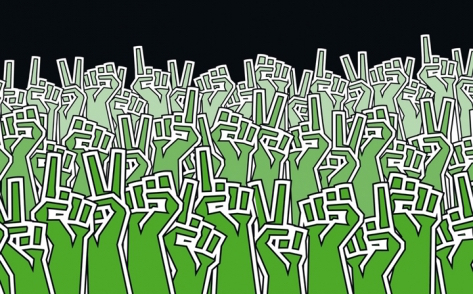[Book] Inventing the Muslim Cool

At Experientia we believe in the importance of understanding cultural differences, no matter how wide they might be. There is not much qualitative research, it seems, that aims at understanding the lived experience of Muslim and Arab youth in European cities. “Terra incognita,” as one researcher calls it. In view of recent events, this has turned out to be a very unfortunate gap. Here are a few studies that have tried to bridge that divide:
Inventing the Muslim Cool – Islamic Youth Culture in Western Europe
By Maruta Herding
Transcript Publishers, 2013, 242 pages
In the current environment of a growing Muslim presence in Europe, young Muslims have started to develop a subculture of their own. The manifestations reach from religious rap and street wear with Islamic slogans to morally “impeccable” comedy. This form of religiously permissible fun and of youth-compatible worship is actively engaged in shaping the future of Islam in Europe and of Muslim/non-Muslims relations.
Based on a vast collection of youth cultural artefacts, participant observations and in-depth interviews in France, Britain and Germany, this book provides a vivid description of Islamic youth culture and explores the reasons why young people develop such a culture.
Maruta Herding (Dr.) is a sociologist at the German Youth Institute (Deutsches Jugendinstitut e.V.) in Halle, Germany. The book “Inventing the Muslim Cool” is the publication of her doctoral research, which she conducted at the University of Cambridge. Her research interests include the study of young people, subcultures and Muslims in Europe.
> Young, Religious and European: A Conservative Avant-Garde Subculture – A review by P?nar Gümü?
> BBC Radio 4 interview
Why the West Fears Islam – An Exploration of Muslims in Liberal Democracies
by Jocelyne Cesari
Palgrave Macmillan, 2013
Are Muslims threatening the core values of the West?
Jocelyne Cesari examines this question through the lens of testimonies from Muslims in France, Germany, the United Kingdom, the Netherlands, and the United States. Her book is an unprecedented exploration of Muslim religious and political life based on several years of field work in Europe and in the United States. It provides original insights into the ways Muslims act as believers and citizens and into the specifics of western liberalism and secularism, particularly after 9/11, and how the specific constraints of Islam in secular spaces trigger a western politics of fear. Its unique interdisciplinary scope allows for an in depth analysis of data polls, surveys, political discourses, policy programs, interviews, and focus groups with Muslims.
Islam in the West: From Immigration to Global Islam (PDF download link)
by Jocelyne Cesari
Harvard Middle Eastern and Islamic Review, 2009
The immigration of Muslims to Europe, North America, and Australia and the complex socioreligious dynamics that have subsequently developed have made Islam in the West a compelling new field of research. The Salman Rushdie affair, hijab controversies, the attacks on the World Trade Center, and the furor over the Danish cartoons are all examples of international crises that have brought to light the connections between Muslims in the West and the global Muslim world. These new situations entail theoretical and methodological challenges for the study of contemporary Islam, and it has become crucial that we avoid essentializing either Islam or Muslims and resist the rhetorical structures of discourses that are preoccupied with security and terrorism.
In this article, I argue that Islam as a religious tradition is a terra incognita. A preliminary reason for this situation is that there is no consensus on religion as an object of research. Religion, as an academic discipline, has become torn between historical, sociological, and hermeneutical methodologies. With Islam, the situation is even more intricate. In the West, the study of Islam began as a branch of Orientalist studies and therefore followed a separate and distinctive path from the study of religions. Even though the critique of Orientalism has been central to the emergence of the study of Islam in the field of social sciences, tensions remain strong between Islamicists and both anthropologists and sociologists. The topic of Islam and Muslims in the West is embedded in this struggle. One implication of this methodological tension is that students of Islam who began their academic career studying Islam in France, Germany, or America and it challenging to establish credibility as scholars of Islam, particularly in the North American academic context.
There is a need to overcome such disparities by considering Islam as a global religious tradition. This approach will allow us to better understand Islam’s contemporary trends within special cultural contexts throughout the world. It is also becoming increasingly clear that no single academic discipline is equipped to accommodate a complete understanding of Islam in the West. Therefore, an interdisciplinary methodology is indispensable for pursuing this new field of research. Only such an approach will be capable of addressing and appreciating the multivalent realities that Muslims face in the West.
Europe’s Muslim women: potential, aspirations and challenges (PDF download link)
Qualitative study based on interviews with Muslim women in Brussels, London and Turin (2008)
by Dr Sara Silvestri (London’s City University and Cambridge University, UK)
King Baudouin Foundation, 2008
This report aims to obtain a general sense of the extent to which the religion of Islam plays a role in defining the experiences of Europe’s Muslim women and to charter the main issues of concern, and trends of thinking and of mobilisation among them. The study has the ambition to bring forth the voice, daily life, problems, and aspirations of these women. It was conducted in Belgium, Great Britain and Italy, primarily in three cities with large concentrations of Muslim populations: Brussels, London, and Turin. It involved questionnaires and structured and unstructured interviews with 49 Muslim women.
Islamic Political Radicalism: A European Perspective
by Tahir Abbas
Edinburgh University Press, 2007
Islamic political radicalism in Europe has seen dramatic growth in recent times. This book offers a sociological, anthropological, psychological and political science analysis of the causes and consequences of this phenomenon. Authors explore the motivations behind such radicalism, focusing on an array of different factors. These include economic and social alienation, political and cultural marginalisation, gender and masculinity, and psychological issues, both at an individual and community level. Other issues discussed are the state responses, national and international, to the ‘War on Terror’ which came about after the attacks on America in September 2001; and the role of Islamic political organisations and their impact on changing ethno-religious identities. This is considered particularly in relation to concept of the Ummah and its influence on the position of Islam and Muslims in places such as Iraq, Afghanistan, and Palestine, as well as Bosnia, Chechnya, and Kashmir. The authors provide an analysis of events and experiences in different European nation states, with a detailed focus on Britain. This book is particularly relevant in the current climate as an attempt to understand the factors that shape Islamic political radicalism in Europe. Key Features: *Written for academics as well as activists and practitioners *Explores major new and emerging issues, particularly in the aftermath of the July 2005 London bombings.
> Excerpts



